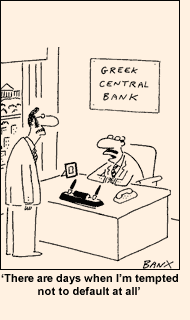Cameron’s missed Moscow gambit
Roula Khalaf, Editor of the FT, selects her favourite stories in this weekly newsletter.
Time was when a British Conservative prime minister had a lot of status in Russia. This former Moscow correspondent remembers all too well the kowtowing awe with which Margaret Thatcher – whose “Iron Lady” tag came courtesy of the Red Army newspaper, Red Star – was greeted in the Soviet capital. Less so today, it seems.
Izvestiya, a state newspaper in Soviet times that still has more than a touch of the establishment’s daily about it, this week ran a prominent picture of President Dmitry Medvedev looking grimly doubtful, with visiting British prime minister David Cameron bent close to him, hands out as if in supplication. It was not an image of which Mrs Thatcher would have approved.
The headline – “The Litvinenko Affair is still alive” – only went on to underscore the ongoing difficulties between the two countries and gave the lie to the apparent agreement to park them for the trip. Alexander Litvinenko, a British-naturalised Russian and former – if penitent – KGB agent, died from radiation poisoning in November 2006. The strong British suspicion is that this was a state-sponsored murder and Britain has demanded the extradition of Andrei Lugavoy – the former KGB bodyguard now turned Russian MP – who met Litvinenko on the day of his death.
Mr Lugavoy has, in turn, blamed the British secret service for the murder and Russia has refused to extradite: “You have to learn,” said Mr Medvedev tartly to Mr Cameron during their press conference on Monday, “to respect our legal framework.” His more powerful prime minister, Vladimir Putin, now expected to run for president once more in the elections at the end of this year, would growl amen to that.

Another way of looking at the Moscow meeting, however, is to see it not as an attempt to brush a previous spat under the carpet, but rather as two middle-ranking, post-imperial powers groping for some sort of modern relationship, with each other and with Europe. Indeed, perhaps this is the opportunity for a new start that was missed. Britain has had longer to get used to the loss of an empire; Russia, and Mr Putin in particular, still feels the pain of severance acutely. Yet while Britain knows all about the pain of finding a new role in the world, it has also come to see it is actually better off without an empire at all. It is perhaps a friendly insight Mr Cameron might have sought to convey to his Russian counterparts, between the toasts.
Russia’s secret plan
Mr Cameron’s visit was easily eclipsed by that perennial bad boy of post-Soviet politics, the controversial arch-nationalist Vladimir Zhirinovsky, who gave a typically fiery interview. Perhaps with Mr Cameron’s supplicant pose fresh in his mind, Mr Zhirinovsky invoked the days when all great powers bowed their heads to Russia and vowed they would soon do so again. And why? Russia, he said, had developed a new secret weapon that would soon unleash non-explosive but massive destruction on the world. What was it, asked the interviewer, with some interest? Mr Zhirinovsky replied that it was secret, but one only had to look at the Japanese tsunami for a clue – and then to think about Russia’s dispute with Japan about the possession of the Kurile Islands. Other enemies of the state – such as Mikheil Saakashvili, president of Georgia – were also advised to shut up, or disaster might come their way too. It’s enough to make a visiting British prime minister glad he only has Mr Putin to deal with.
Great works
One of the greatest products of the Soviet empire was one it refused to publish: Life and Fate, by Vassily Grossman. It is a vast novel whose descriptions of the extremes of human violence and evil make it all but unreadable in parts – but which nonetheless stands as a powerful indictment of totalitarianism. Despite it being finished during the “thaw” that followed Stalin’s death, Mr Grossman was told the work would not be published for 200 years. It did eventually see the light, but only in the west, after a manuscript was smuggled out to France. It has since languished in the little-known lists, but now is being serialised – over the course of a week, starting this Sunday on BBC Radio Four, with Kenneth Branagh in the lead. It’s a belated recognition of one of the most important books of the last century and a small bit of good news amid the Russian gloom.
Comments